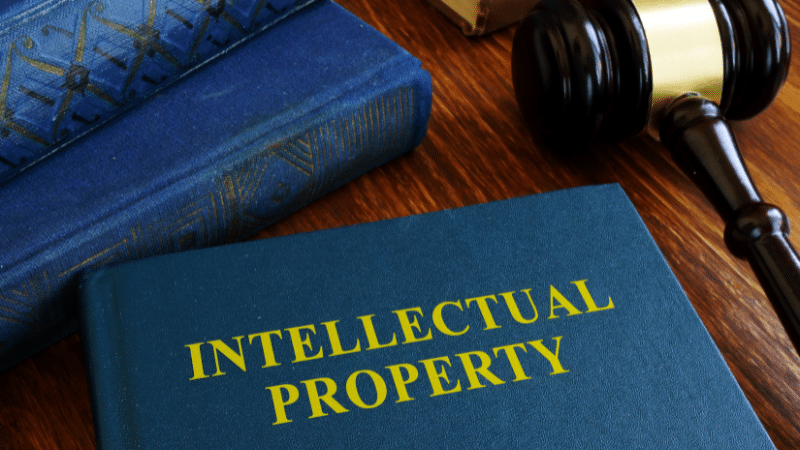How Intellectual Property and Copyright Law Work

Intellectual property refers to creations of the mind, such as inventions, literary and artistic works, designs, symbols, names, and images used in commerce. It plays a crucial role in fostering innovation by providing creators with the exclusive rights to their creations. At the heart of this legal framework is copyright law, a key player in the protection of intellectual property.
Contents
- 1 Types of Intellectual Property
- 2 Focus on Copyright Law
- 3 How Copyright Protects Creations
- 4 Fair Use and Exceptions
- 5 Enforcement of Copyright Law
- 6 International Aspects of Copyright Law
- 7 Challenges and Controversies
- 8 Intellectual Property in the Digital Age
- 9 Role of Copyright in Business
- 10 Intellectual Property and Innovation
- 11 Recent Developments in Copyright Law
- 12 Future Trends
- 13 Conclusion
- 14 FAQs
Types of Intellectual Property
- Copyright:
- Protects original works of authorship, including literary, artistic, and musical creations.
- Trademarks:
- Safeguards symbols, names, and slogans identifying goods or services.
- Patents:
- Grants exclusive rights to inventors of new and useful inventions.
- Trade Secrets:
- Protects confidential business information and processes.
Focus on Copyright Law
Definition and Scope
Copyright law safeguards the expression of ideas in tangible forms, providing creators exclusive rights to their works. The scope extends to various creative domains, from literature and art to music and software.
Duration of Copyright
Copyright protection is not eternal. The duration varies, ensuring a balance between the rights of creators and the public domain. Understanding these timelines is crucial for both creators and consumers.
Rights Granted to Copyright Holders
Copyright holders enjoy exclusive rights, including reproduction, distribution, public performance, and the creation of derivative works. These rights form the bedrock of copyright protection.
How Copyright Protects Creations
Literary Works
Books, articles, and other written works fall under the protection of copyright law. Authors have the exclusive right to reproduce, distribute, and display their literary creations.
Artistic Works
Paintings, sculptures, and other visual arts are protected by copyright. Artists retain control over the reproduction and public display of their artistic endeavors.
Musical Compositions
Musicians and composers benefit from copyright protection, which covers the musical composition and lyrics. This safeguards their rights in the production and distribution of their music.
Software
In the digital age, software is a critical intellectual asset. Copyright law ensures that software developers have exclusive rights to their creations, preventing unauthorized reproduction or distribution.
Fair Use and Exceptions
Understanding Fair Use
Fair use allows the limited use of copyrighted material without permission for purposes such as criticism, commentary, news reporting, teaching, scholarship, and research.
Examples of Fair Use
Analyzing real-world examples of fair use helps clarify its application. From parodies to educational use, fair use serves as a vital exception to copyright restrictions.
Other Exceptions to Copyright
Beyond fair use, certain situations permit the use of copyrighted material without permission. These exceptions are essential in balancing the rights of creators and the public interest.
Enforcement of Copyright Law
Legal Actions for Infringement
Copyright infringement can lead to legal actions, including cease and desist orders and monetary damages. Understanding the consequences is crucial for both copyright holders and potential infringers.
Consequences of Copyright Infringement
The ramifications of copyright infringement extend beyond legal consequences, impacting the reputation and financial standing of both individuals and businesses.
International Aspects of Copyright Law
Berne Convention
The Berne Convention establishes international standards for copyright protection, ensuring that the rights of creators are recognized across borders.
TRIPS Agreement
Trade-Related Aspects of Intellectual Property Rights (TRIPS) Agreement, administered by the World Trade Organization (WTO), sets down minimum standards for various forms of intellectual property.
Challenges and Controversies
Digital Rights Management (DRM)
As technology advances, so do challenges in protecting digital content. Digital Rights Management (DRM) attempts to address these challenges, but it sparks debates about user rights.
User-generated Content and Copyright
The rise of user-generated content on platforms poses challenges to traditional copyright models. Balancing the rights of content creators and users is an ongoing struggle.
Read More: Intellectual Property Rights: Protecting Your Business Assets
Intellectual Property in the Digital Age
Online Piracy
The digital age has brought about new challenges, with online piracy threatening the economic interests of copyright holders. Effective legal mechanisms, such as Digital Millennium Copyright Act (DMCA) takedown notices, are employed to combat this issue.
DMCA Takedown Notices
The DMCA provides a mechanism for copyright holders to request the removal of infringing content from online platforms. Understanding this process is essential for those involved in intellectual property protection.
Role of Copyright in Business

Licensing
Licensing allows copyright holders to grant others the right to use their intellectual property in exchange for compensation. It serves as a valuable source of revenue for creators.
Royalties
Royalties are payments made to copyright holders for the use of their intellectual property. Understanding the royalty system is crucial for both creators and those seeking to use copyrighted material.
Brand Protection
Copyright plays a pivotal role in brand protection, ensuring that distinctive elements associated with a business are safeguarded against unauthorized use.
Intellectual Property and Innovation
Incentives for Innovation
Copyright serves as an incentive for innovation by providing creators with the assurance that their efforts will be rewarded. This balance between protection and access fuels progress in various industries.
Balancing Public Interest
While protecting intellectual property is essential, striking a balance with the public interest is equally crucial. Copyright law aims to encourage creativity while ensuring reasonable access for the public.
Recent Developments in Copyright Law
Technology Impact
Advancements in technology continuously reshape the landscape of copyright law. From blockchain to artificial intelligence, understanding these technological influences is key to navigating the evolving legal terrain.
Case Studies
Examining recent case studies provides insights into how copyright law is applied in real-world scenarios. From high-profile lawsuits to landmark decisions, these cases shape the legal landscape.
Future Trends
Evolving Legislation
As society changes, so does the need for updated legislation. Anticipating future trends in copyright law helps stakeholders prepare for the challenges and opportunities that lie ahead.
Technological Advancements
The integration of emerging technologies poses both opportunities and challenges for copyright protection. Staying abreast of technological advancements is crucial for the effective enforcement of copyright law.
Read More: The Role of Intellectual Property Law in Today’s Business World
Conclusion
In the complex tapestry of intellectual property and copyright law, understanding the nuances is vital. As we navigate the ever-evolving landscape, balancing the rights of creators with the public interest remains a central challenge. Copyright law not only protects intellectual creations but also shapes the future of innovation.
FAQs
What is the duration of copyright protection?
Copyright protection duration varies but is not indefinite, promoting a balance between creator rights and public access.
How does fair use apply to copyrighted material?
Fair use allows limited use without permission for purposes such as criticism, commentary, and education.
What legal actions can be taken for copyright infringement?
Legal actions for infringement may include cease and desist orders and monetary damages.
How does licensing contribute to the business aspect of copyright?
Licensing allows copyright holders to grant others the right to use their intellectual property for compensation.
How do technological advancements impact copyright law?
Technological advancements continuously shape and challenge the enforcement of copyright law.





